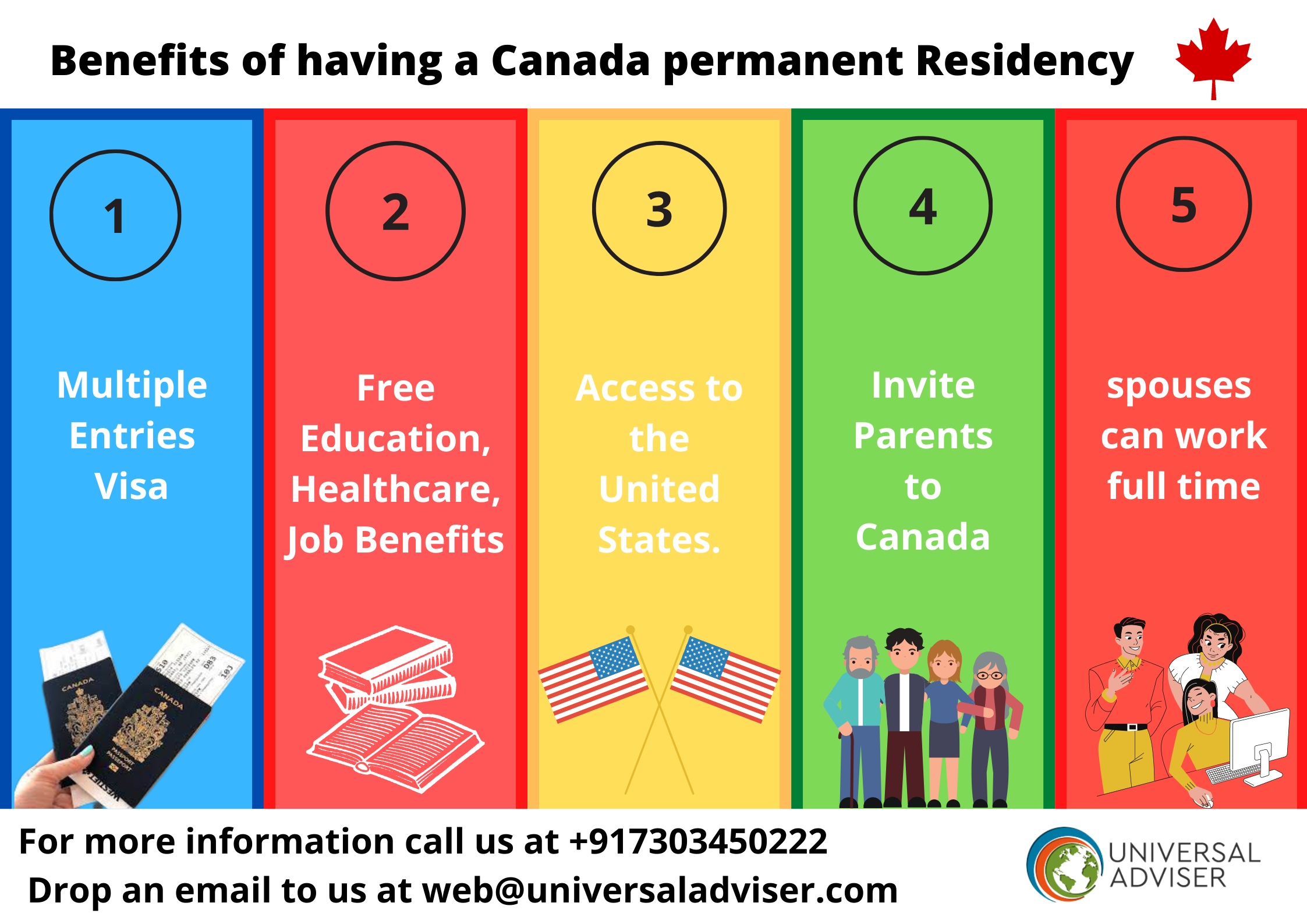
in order to become Canadian permanent residents, prospective immigrants are increasingly choosing Canada as their destination and at the same time it has become competitive more than ever.
However, Canadian permanent residents or those who plan to become permanent residents must be aware of a number of laws, rules, and technicalities pertaining to permanent resident status.
Furthermore, are you aware of the definition of “permanent resident”? While the majority of benefits are the same for citizens, there are several notable exceptions.
This article will help you comprehend every facet of permanent resident status.
What does it mean to be a Canada Permanent resident?
A permanent resident is a person who immigrated to Canada and received permanent resident status despite not being a Canadian citizen.
Citizens of foreign nations make up the majority of permanent residents.
You can enter Canada without a visa if you hold the status of a permanent resident in Canada.
Nevertheless, you have to make sure your PR card is still valid when returning from a vacation outside of Canada and, if needed, apply for a new one.
If your PR card expires, you do not lose your status as a permanent resident.
However, permanent residents (PRs) must provide their valid PR card or permanent resident travel document (PRTD) when boarding a flight on a commercial airline.
If you don’t have your PR card or PRTD, you might not be able to board your plane, train, bus, or ferry to Canada.
Applying for temporary or refugee status does not grant permanent residency.
Individuals have to get the Immigration and Refugee Board to approve their claim before they may become a permanent resident. After that, they must apply for and receive permanent resident status.
As a result, someone who is merely visiting or temporarily residing, such as a student or foreign worker, is not regarded as a permanent resident.
importance of having a permanent resident (PR) card
Presenting your PR card is one way to demonstrate that you are a permanent resident. You are free to enter and leave Canada as a result.
Therefore, in order to confirm your PR status and passport when returning to Canada via commercial transportation, such as an airplane, boat, train, or bus, you must provide your permanent residence card.
You must apply for a permanent resident travel document if you are currently outside of Canada and a permanent resident without a PR card or if you do not have one.
This is because if you enter Canada again without your PR card or PRTD, you might not be allowed back.
What benefits come with having a permanent residence in Canada?
The following benefits are available to a permanent resident:
- obtain the most social benefits available to Canadian citizens, such as healthcare coverage
- reside, work, or attend school anywhere in Canada
- apply for citizenship in Canada
- protection under the Canadian Charter of Rights and Freedoms and the legislation of Canada.
However, in order to benefit from Canadian permanent residency, you must pay taxes and obey all municipal, provincial, and federal laws.
What a Canadian permanent resident cannot do vs. a Canadian citizen?
You cannot, as a permanent resident, do the following:
- Voting or pursuing public office
- Hold job positions that call for a high degree of security clearance.
For how long must you remain in Canada in order to keep your PR status?
For the past five years, in order to keep your status as a permanent resident of Canada, you had to have been here for at least 730 days.

There is no requirement that these 730 days occur in order. In certain circumstances, you may apply your time abroad toward 730 days.
Verify whether the time you spent overseas counts toward obtaining permanent residency.
Click here for full details on how to meet the permanent residency obligation.
Losing the permanent residency status
An individual still maintains their status as a permanent resident even after their PR card expires.
However, a permanent resident may risk losing their status under one of the following conditions:
- A removal order is issued and goes into effect against you.
- An adjudicator determines, following an investigation or PRTD appeal, that you are no longer a permanent resident; or
- You decide to renounce your status as a permanent resident.
- You become a citizen of Canada.
- Even if you don’t meet the residency requirement, you are still considered a PR until your status is decided.
Renouncing Permanent Residency
One day, you may decide that living in Canada isn’t what you want to do. If so, you are able to apply voluntarily to no longer be considered a permanent resident.
For instance, if you:
- are aware that by spending a significant amount of time abroad, you have failed to fulfill your residency requirements, and
- would like to travel to Canada, and
- are unwilling to wait for a visa officer to formally evaluate your status as a permanent resident
Leave a Reply
You must be logged in to post a comment.